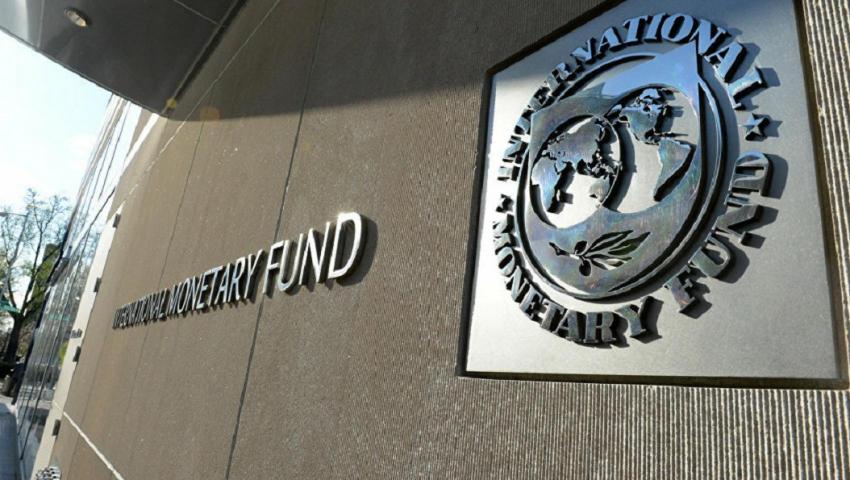The IMF lowered its forecast for Bulgaria's economic growth for this year

The International Monetary Fund (IMF) lowered its forecast for the development of the Bulgarian economy for this year, while at the same time betting on higher inflation. This is indicated by the data from the latest Review of the Global Economy, entitled "Stable but slow growth: Resilience amid differences", reported the BTA representative in Washington.
For this year, the IMF expects Bulgaria's economy to grow by 2.7 percent. This is a lower estimate than the autumn report published in October last year, which predicted growth of 3.2 percent.
In 2023, the economy of our country grew by 1.8 percent.
In its assessment for 2025, the IMF expects our national economy to report growth of 2.9 percent.
In terms of inflation, the Fund expects a rate of 3.4 percent in 2024, following the 3 percent consumer price growth forecast recorded in the October report. For 2025, the Fund expects inflation to slow down to 2.7 percent.
In the spring forecasts of the IMF, it is also indicated that unemployment in our country in 2024 will decrease to 4.3 percent, with expectations for a level of 4.4 percent in the October report. In 2023, the level of the indicator was 4.4 percent. Next year, the indicator will continue to decrease, reaching 4.2 percent, expect the Fund's experts.
Assessments of other institutions
Bulgaria's real gross domestic product is expected to increase by 1.9 percent in 2024, the European Commission announced in February. Then the EC adjusted upward compared to its autumn forecast the growth expectations of the Bulgarian GDP.
By comparison, the Bulgarian National Bank forecast GDP growth of 2.2 percent for the current year in its March macroeconomic forecast, which was published earlier today, and the Ministry of Finance's forecast for the adoption of the national budget assumed GDP growth from 3.2 percent.
Regional context
For Europe overall, in its spring report the IMF raised its growth forecast for 2024 to 1.6 percent from an October estimate of 1.5 percent.
Among the countries of the region, the economy of Romania is expected to grow by 2.8 percent, and that of Greece - by 2.0 percent.
For Croatia, the Fund's expectations point to GDP growth of 3.0 percent this year, an upward revision from the October analysis, which had predicted growth of 2.7 percent.
The IMF has raised its expectations for global GDP growth in 2024.
The International Monetary Fund (IMF) has revised upward its expectations for global economic growth, according to the IMF's latest spring report on the outlook for the global economy. According to the latest estimate of the Washington institution, global economic growth this year will be 3.2 percent, the same as in 2023. In its January interim forecast, the IMF indicated that the indicator for this year will grow by 0.1 percentage points less, or by 3.1 percent.
Global average headline inflation will slow from 5.9 percent at the end of 2024 to 4.5 percent at the end of 2025. The IMF's new assessment shows that price increases will be higher this year (+0.1 percentage points) than the forecasts in January, and this also applies to 2025.
"The global economy remains remarkably resilient, with growth holding steady while inflation returns to target levels. In recent years, the global economy has been going through a number of challenges, starting with supply chain disruptions as a result of the pandemic, Russia's war against Ukraine, which triggered a global energy and food crisis, alongside a significant spike in inflation, followed by a globally synchronized tightening of monetary policy," said a summary of the report signed by IMF head of research Pierre-Olivier Gurinchus.
Still, despite many gloomy predictions, the world avoided recession, the banking system proved largely resilient, and major emerging market economies did not experience sudden shocks. Moreover, the surge in inflation - despite its severity and the associated cost-of-living crisis - did not trigger uncontrolled spirals from wage costs, the foreword to the IMF's spring forecasts also stated.
The changes
In terms of advanced economies, the IMF downgrades its forecast for this year's growth of the eurozone economy (+0.8 percent, down 0.1 percentage points from the January estimate), Great Britain (+0.5 percent, which is 0.1 percent below the January forecast and Canada (+1.2 percent, which is 0.2 percentage points below the January estimate).
However, the fund now expects greater growth in the US (+2.7 percent, or 0.6 percentage points above the previous forecast), with Japan unchanged
The main reason for the downgrade for the Eurozone economy is a worsening of the situation in Germany, France and Italy, for which economic estimates have been lowered by 0.1 percentage points, 0.3 percentage points and 0.3 percentage points respectively to growth of 0 .8 percent, 0.2 percent, and 0.7 percent.
According to IMF estimates, the US economy is already surpassing its pre-pandemic growth rate.
In the Eurozone, economic growth remains subdued as tighter monetary policy and energy costs, as well as planned fiscal consolidation, put pressure on activity. Continued high wage growth and persistent inflation in services may slow the return of inflation to the target level.
For China in 2024, the forecast remains unchanged - for GDP growth of 4.6 percent, but for India it has been raised by as much as 0.3 percentage points to 6.8 percent.
According to the IMF's spring forecasts, Russia's economy will grow by 3.2 percent in 2024 and 1.8 percent in 2025, a significant increase from January estimates for both years.
